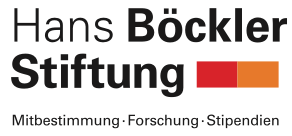Column
US support for codetermination from an unlikely source – conservative Republicans
Project 2025, a right-wing blueprint for Donald Trump’s return to the White House, reflects a schism among US conservatives about the best labor policies, with younger conservatives praising codetermination and works councils. Could this be an opportunity for Germany to find new transatlantic dialogue partners?

The US presidential election is in full swing, with many surprises still to come. One shocker has been to see support for German-style codetermination and works councils coming from the unlikeliest source – some conservative Republicans.
As preparation for the presidential campaign, the ultra-conservative Heritage Foundation created a 900 page document known as Project 2025, which is a right-wing manifesto outlining policies for Donald Trump’s return to the White House. Project 2025 is an ambitious blueprint to redesign the federal government and its dozens of administrative agencies to support and sustain neo-conservative dominance for the next decade.
Most of Project 2025 is alarming, calling for backwards policies like the abolition of the Department of Education and the Federal Reserve, a “biblically based” definition of family and society, additional restrictions on abortion, and the relaxation of labor laws to allow young adults to work in “dangerous jobs” with parental consent. Stepping across many bright red lines of US political tradition, it calls for politicization of the Department of Justice so the Attorney General can attack the president’s opponents, as well as politicization of the nonpartisan civil service workforce so that they are loyal to the president, reintroducing a patronage system that was outlawed nearly 150 years ago. In many places, Project 2025 reads like a medieval program to wind back the clock on women’s and human rights.
Anti-labor regulation in a new Trump administration
For the Department of Labor and workers, Project 2025 wants to overturn enforcement of crucial federal labor laws regarding a minimum wage, overtime pay, child labor, the right of workers to organize into trade unions, engage in collective bargaining and take collective action such as strikes. These would eviscerate many of the most important labor laws of the past 75 years. Project 2025 also would reverse Obama- and Biden-era regulations that reined in widespread worker abuses in the fast food industry by holding corporations like McDonald’s and Burger King jointly liable for labor law violations committed by individual franchise owners operating under the corporation’s brand. All of this is framed amidst a nostalgic “back to the future” perspective based on race, gender, religion and anti-abortion sentiment.
Many of the proposals are focused more on restoring some nostalgic version of white male supremacy and Christian nationalism than on actually aiding workers.
It’s doubtful that many of the 161 million employed Americans, most of whom are coping with high prices, inadequate wages and startling levels of inequality, lay awake at night worrying over issues of race, gender or religion in the workplace. Especially since 39 percent of those workers are minority and 55 percent are female. Many of Project 2025 proposals applied to labor are focused more on restoring some nostalgic version of white male supremacy and Christian nationalism than on actually aiding workers.
Splits within the conservative movement
But here’s where it gets interesting. When it comes to labor laws and regulations, there is a recent split in the conservative movement led by a group of younger conservatives who started a relatively new organization, American Compass. Its founder, Oren Cass, is an economist who has been making waves in conservative circles by challenging some of the neo-liberal, free-market fundamentalism that has been core to conservatism, and especially to Donald Trump/MAGA conservatism. Their fingerprints are all over part of the document, with Cass listed as one of the co-authors of the chapter on the Department of Labor.
Project 2025 includes some intriguing ideas like a call for better quality childcare, and a “day of rest” on “the Sabbath,” defined as either Sunday or another day of “sincere religious observance.” That seems like a good idea for the “No Vacation American Nation,” where workers have fewer vacation days and holidays than Germany and other developed countries.
Codetermination, conservative-style?
Then the Labor chapter gets really attention-grabbing. Project 2025 calls for “non-union worker voice and representation” and creation of “Employee Involvement Organizations.” By this the manifesto means a U.S. version of German-style codetermination, in which “works councils” in workplaces and worker representation on corporate boards of directors could help workers to gain consultation rights and flex their power, beyond what labor unions provide.
Another proposal is for a broadening of workers’ access to Employee Stock Ownership Plans (ESOPs), which allow workers to become owners in the business in which they work and receive compensation beyond wages and benefits. Today 14.7 million U.S. workers are covered by over 6300 ESOPs, almost as many workers as are members of labor unions, providing $2.1 trillion of employee benefits. It’s been a decades-long success, and it is surprising that both Republicans and Democrats haven’t done more to promote this policy.
There is also a call for Congress to provide a “safe harbor” from job misclassification penalties for employers that offer to independent workers, including digital platform workers like Uber drivers, some safety net benefits like healthcare and retirement support. Project 2025 shows a faint recognition that much more needs to be done to prepare the workforce for the very near-future of more widespread platform and remote work. Of course these calls by young US conservatives for codetermination, works councils, ESOPs and other worker-supportive innovations are in a very early stage and will need more substantive details before it will be clear how sincere or impactful these proposals might be. Nevertheless, on the US political landscape it is a remarkable development and warrants paying closer attention to its future evolution.
This reflects the very real debates within the conservative movement itself about the best approaches toward addressing labor issues.
Interestingly, Project 2025 occasionally presents an “alternative conservative view on these matters,” in which differing conservative philosophies and policy goals are summarized. This reflects the very real debates within the conservative movement itself about the best approaches toward addressing labor issues. William Galston from the Brookings Institute called Oren Cass’s book “The Once and Future Worker” a “welcome common ground for policy debates across partisan and ideological lines.” Unfortunately this sensible minority view within conservatism, while growing, is still mostly overwhelmed by the dominant view and its race, gender and nationalist obsessions.
Big Tech regulations in Project 2025
Similarly, the Project 2025 chapters on the Federal Trade Commission and the Federal Communications Commission pull back the curtain on another interesting philosophical tension within conservatism, over the right approach to regulate giant corporations and outsized economic power. These two agencies regulate Big Tech, including the internet, radio, television, cellular, broadband wireless, cable and satellite, and have been at the forefront of filing lawsuits to break up monopolies. For example, recently a federal court declared Google a “monopolist” in a landmark antitrust ruling, and there are pending cases against Meta/Facebook, Amazon and Apple. Project 2025 shares some strangely common ground with progressive thinkers in its calls for:
- Better transparency rules applied to Big Tech around abuses caused by manipulation of search results.
- Empowering consumers to choose their own content filters, instead of Facebook doing it for you.
- Ensuring stronger protections to prevent young children from accessing social media sites.
The conservative’s Project 2025 points the spotlight on how greedy US technology companies have been aiding the development of Chinese technology (including surveillance technology) as the price for gaining access to Chinese markets. But it vacillates between the usual right-wing, anti-China bashing rhetoric and some useful proposals reflecting a more realistic assessment of China. And nowhere in Project 2025 is there a call for serious anti-monopoly enforcement, such as restricting or closely scrutinizing mergers and acquisitions, much less breaking up monopolist tech companies that have gobbled up competitor after competitor.
These are small but positive signs, since for decades US conservatives have been uniformly opposed to such measures that were viewed as 'creeping socialism'.
Project 2025 is getting a lot of attention right now, with the Kamala Harris campaign really bashing it and trying to pin it on Trump, and Trump distancing himself from it (which is hard to do, since many of Trump’s closest advisers were actually the authors of it). For German readers, what’s interesting about these parts of Project 2025 is that, even within this right-wing document there is a spotlight on codetermination, works councils and other German-like labor practices. And there is some philosophical debate within the conservative movement over best approaches to labor unions, worker empowerment in the digital age and how to reign in Big Tech. These are small but positive signs, since for decades US conservatives have been uniformly opposed to such measures that were viewed as “creeping socialism.”
Despite its bombast and scary excesses, Project 2025 provides a chance for outside observers to peek inside the conservative movement and its philosophical splits. With younger conservatives trying to forge a new path, that might provide an opening for German labor unions and its allies to start a conversation with a new generation of US conservatives who are open to economic democracy instruments like co-determination, works councils and employee stock ownership plans.
German Language Version
-
Column
Trump and Musk mounting furious attack on labor rights and workers
-
Column
US support for codetermination from an unlikely source – conservative Republicans
-
Column
Can the EU and the US protect their 21st century workforces?
-
Column
Massive tech layoffs continue as companies retool for AI
-
Column
US labor unions strike over impacts of AI and new technologies
-
Column
Antitrust law is (finally) being enforced again in the U.S.
-
Column
Employer surveillance against workers spreads
-
Column
If it seems too good to be true … it probably is
-
Column
Helping gig workers help themselves
-
Column
Workers of the World…quit?
-
Column
Will US labor unions stand by Uber drivers and gig workers?
-
Column
Stirrings of union organizing in the “paradise” of Big Tech
-
Column
Will Pres. Joe Biden restore worker and union power?
-
Column
Corona-fied: employers spying on remote workers in their homes?
-
Column
The challenges of the post-coronavirus workforce
-
Column
Amazon workers fight back
-
Column
A blow against "bogus self-employment" and gig economy
-
Column
Renewing Worker Cooperatives for the Digital Age
-
Column
Codetermination takes the spotlight in the US
-
Column
Who will fight for the 'good jobs' economy?
-
Column
Trump attacks workers and the labor movement in the US
-
Column
The distributed workforce: what will jobs of the future look like?
-
Column
The "Uber way" of precarious work



